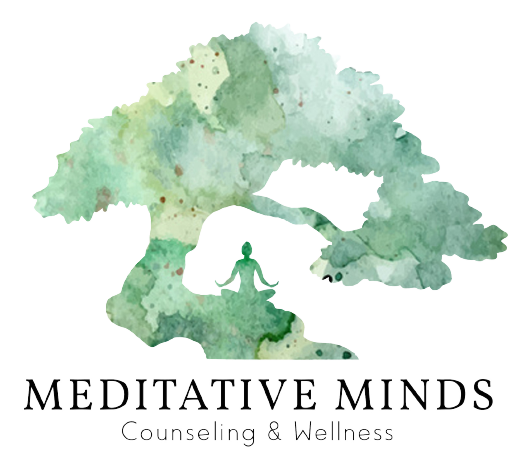Betrayal trauma is a deeply distressing experience that can shatter our sense of trust and safety in relationships. Whether it’s infidelity, deception, or emotional manipulation, the aftermath of betrayal can leave lasting scars on our emotional well-being. However, amidst the pain and turmoil, there is hope for healing. Therapy provides a safe and supportive space for individuals to navigate the complex emotions and challenges that arise from betrayal trauma. In this blog series, we’ll explore the journey of healing from betrayal, focusing on how therapy can facilitate the process of rebuilding trust and safety. From processing painful emotions to learning healthy coping mechanisms, therapy equips individuals with the tools they need to reclaim their sense of self-worth and rebuild their lives. Through personal stories, expert insights, and practical tips, we’ll delve into the transformative power of therapy in overcoming betrayal trauma and fostering resilience. Join us as we embark on a journey towards healing and restoration.
Overcoming Stigma Around Therapy for Mental Health

In today’s fast-paced world, where stressors abound and mental health issues are on the rise, seeking therapy has become an increasingly vital aspect of self-care. Yet, despite its proven efficacy in promoting mental well-being, therapy still carries a stigma in many societies. This stigma often deters individuals from seeking the help they need, perpetuating a cycle of silence and suffering. In this article, we delve into the stigma surrounding therapy for mental health and explore strategies for breaking down these barriers to access.
- Understanding the Stigma: Stigma arises from societal attitudes and misconceptions surrounding mental illness and therapy. It manifests as discrimination, prejudice, and shame, leading individuals to feel embarrassed or weak for seeking help. This stigma can be particularly pronounced in cultures that emphasize stoicism and self-reliance, viewing therapy as a sign of personal failure rather than strength.
- Impact of Stigma on Help-Seeking Behavior: The pervasive stigma surrounding therapy has tangible consequences on help-seeking behavior. Many individuals delay or avoid seeking therapy altogether due to fear of judgment or social repercussions. This reluctance can exacerbate mental health issues, leading to prolonged suffering and decreased quality of life.
- Challenging Misconceptions: To overcome stigma, it’s essential to challenge misconceptions surrounding therapy and mental illness. Educating the public about the efficacy of therapy in treating a wide range of mental health conditions is crucial. Highlighting the success stories of individuals who have benefited from therapy can help dispel myths and encourage others to seek help without shame.
- Promoting Open Dialogue: Creating spaces for open dialogue about mental health and therapy is instrumental in reducing stigma. By fostering conversations in communities, schools, and workplaces, we can normalize discussions around mental health and encourage individuals to seek support when needed. Peer support groups and online forums also play a valuable role in providing a sense of belonging and understanding.
- Advocating for Policy Changes: Advocacy efforts aimed at policy changes can help improve access to mental health services and reduce stigma. By advocating for increased funding for mental health programs, integration of mental health education in schools, and implementation of anti-stigma campaigns, we can create a more supportive environment for those in need of therapy.
- Celebrating Mental Health Successes: Highlighting stories of resilience and recovery can shift societal perceptions of mental illness and therapy. By celebrating mental health successes and acknowledging the courage it takes to seek help, we can promote a culture of acceptance and support. Sharing personal experiences of therapy can inspire others to take the first step towards healing.
How Therapy Nurtures Mental Strength

Resilience, often defined as the ability to bounce back from adversity, is a crucial component of mental well-being. In the face of life’s challenges, resilient individuals demonstrate adaptability, perseverance, and optimism. While some may possess inherent resilience, it is also a skill that can be nurtured and strengthened over time. Therapy serves as a powerful tool in fostering resilience by providing individuals with the support, guidance, and coping strategies needed to navigate life’s ups and downs. In this article, we explore the concept of resilience and delve into how therapy plays a pivotal role in nurturing mental strength.
Understanding Resilience
Resilience is more than just the ability to withstand adversity; it encompasses the capacity to grow and thrive in the face of challenges. Resilient individuals possess a repertoire of coping skills, including problem-solving abilities, emotional regulation, and social support networks. They view setbacks as temporary and opportunities for growth, rather than insurmountable obstacles.
The Role of Therapy in Building Resilience
Therapy provides a supportive and nurturing environment for individuals to explore their thoughts, feelings, and experiences. Through evidence-based techniques and interventions, therapists help clients develop coping skills and resilience-building strategies tailored to their unique needs. Whether through cognitive-behavioral therapy (CBT), mindfulness practices, or narrative therapy, therapists empower clients to confront challenges and cultivate resilience.
Developing Coping Strategies
One of the primary goals of therapy is to equip individuals with effective coping strategies to manage stress and adversity. Therapists work collaboratively with clients to identify unhealthy patterns of thinking and behavior, replacing them with more adaptive responses. By learning to challenge negative beliefs and develop healthy coping mechanisms, individuals can better navigate life’s inevitable setbacks.
Building Emotional Resilience
Emotional resilience involves the ability to regulate one’s emotions and maintain a sense of equilibrium in the face of stress. Therapy offers a safe space for individuals to explore and process their emotions, gaining insight into underlying triggers and patterns. Through techniques such as mindfulness and emotion-focused therapy, clients learn to cultivate emotional awareness and resilience.
Fostering Social Support
Strong social support networks are a cornerstone of resilience, providing individuals with a sense of belonging and connection during difficult times. Therapy can facilitate the development of supportive relationships, both within the therapeutic setting and beyond. By strengthening interpersonal skills and communication strategies, individuals can enhance their social support systems and resilience.
Promoting Post-Traumatic Growth
In the aftermath of trauma, therapy plays a crucial role in promoting post-traumatic growth – the phenomenon whereby individuals experience personal growth and transformation in the wake of adversity. Through trauma-focused therapies such as Eye Movement Desensitization and Reprocessing (EMDR) and narrative exposure therapy, individuals can integrate their traumatic experiences into their personal narratives, finding meaning and resilience in the process.
Conclusion
Meditative Minds Counseling & Wellness, located in Simi Valley, CA, USA, offers a vital resource for individuals seeking to cultivate resilience and strengthen their mental health through therapy. Their dedication to providing quality counseling services underscores the importance of proactive mental health care in today’s society. By fostering a supportive environment and offering evidence-based therapeutic approaches, Meditative Minds empowers individuals to navigate life’s challenges with resilience and adaptability. Through their commitment to holistic well-being, they contribute significantly to the promotion of mental health awareness and the overall betterment of the community. For inquiries or appointments, individuals can contact Meditative Minds Counseling & Wellness at 805-285-8466.


